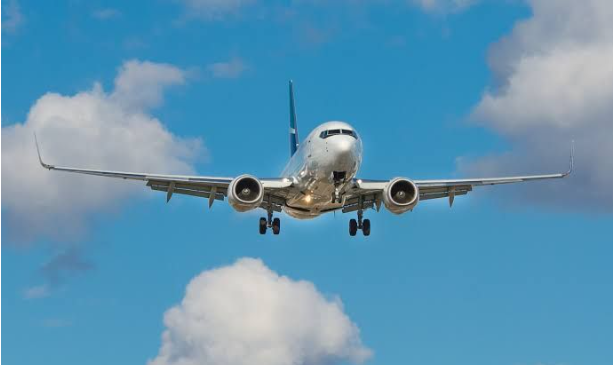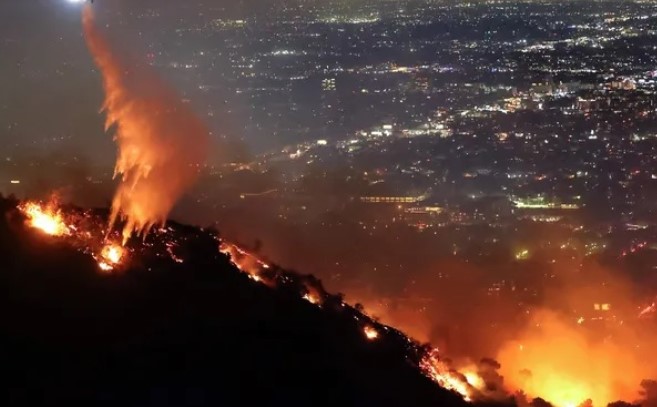
STRATEGIC ASSESSMENT. The continued erosion of international law is among the most insidious threats facing democracies today. The latest blatant aggression concerns international travel and the agreements and laws that govern it. On May 23, 2021, in an act that can be seen as violating multiple international conventions regarding the safety of civil aviation and aircraft, the government of Belarus diverted an international civilian airliner. The plane was traveling between two European Union (EU) countries, and Belarus forcibly detained opposition journalist Roman Protasevich and his girlfriend, Sofia Sapega. Protasevich has been harassed by the government of Belarus for his reporting on last year’s disputed elections; the charges against Sapega, who was accompanying him on the trip, remain unclear. Ryanair flight FR4978, which departed Athens, was in the approach to Vilnius, about to leave Belarusian airspace, when it made a sharp turn and then headed for the more distant airport at Minsk, Belarus’ capital. Belarus’ strongman leader Aleksander Lukashenko dispatched a MiG-29 fighter aircraft to divert the plane to make an emergency landing in Minsk. It is believed that two Belarusian intelligence officers were on the flight and told the crew there was a bomb onboard.
After hours on the ground, during which all the passengers and luggage were searched, the plane departed for Vilnius without Protasevich and Sapega, or the unidentified intelligence officers. In exile in Vilnius, Protasevich was confident that international law would protect him, especially as he traveled from one EU airport to another. He made clear to several passengers that he feared for his life and a video release this morning does little to allay concerns that he was forced to speak under duress in the custody of Belarusian authorities. The blatantly illegal seizure of the plane and arrest of Protasevich and Sapega demonstrated how dictators like Lukashenko, and his supporters like Russian President Putin, act with impunity and do not fear consequences of conducting rogue and illegal acts in European countries. The laws of international civilian air travel, specifically the 1971 Montreal Convention, and several international conventions and treaties regarding the safety of civil aviation and aircraft, have been adhered to by and large for decades. But just like prohibitions and widely accepted norms against assassinations, the “skyjacking” seems lifted from a page in the Kremlin’s playbook. Already, Russian nationals like Sergei Skripal and his daughter, and more recently, Alexei Navalny, have been targeted by state actors on foreign soil.
This was, as described by numerous international officials, a hijacking. It appears that Belarus falsely created conditions to take control of the airliner in order to detain a journalist and political dissident. While the initial EU response was dangerously muted, it now appears that Brussels, Washington, and London will act to deter this illegal behavior. The UK took the lead in prohibiting flights over Belarusian airspace. Belarus is already under sanctions for Lukashenko’s actions regarding improprieties related to the August 2020 election, and more are likely forthcoming. More commercial flights are already avoiding Belarusian airspace and the EU has banned the Belarusian national airline, Belavia, from accessing EU airports. These are necessary, yet in and of themselves insufficient, steps given the severity of the crime. It is also worth noting genuine concern that further isolating Belarus will encourage stronger ties with Moscow and endanger political activists and dissidents who will be unable to fly out of the country; land crossings are already restricted due to COVID-19 measures.
Lukashenko does not deny forcing down the Ryanair flight, although at one point, Belarusian state officials implausibly blamed the Palestinian militant group Hamas for the bomb threat, a proposition that has been widely ridiculed. But the deliberate and brazen nature of the act was the point — the purpose is to send an unequivocal message to anyone that dares to challenge autocratic rule and demand complete fealty to the state.
During his travel, Protasevich texted a trusted contact that he believed he was being followed in the Athens airport after Russian-speaking individuals demanded to see his travel documents. The journalist was perhaps the most wanted man by the Lukashenko regime because he had been able to broadcast what was happening during the protests in the summer and fall of 2020 through his Telegram-based news platform, Nexta. Lukashenko arrested most of his political opposition and then “won” in a blatantly fraudulent election against the remaining candidate, Svetlana Tikhanovskaya. Using social media, Protasevich navigated severe restrictions on internet use and was able to broadcast information to millions. Throughout the world, journalists and political dissidents have been targeted for reporting on the dealings of autocratic states. While the murder of Jamal Khasoggi was perhaps the most prominent example, the intimidation, harassment, and murder of journalists and political oposition figure is a terrifying trend likely to continue as autocrats reach beyond their borders to silence the slightest hint of dissent. The International Civil Aviation Organization (ICAO), a UN specialized agency, will convene an “urgent meeting” of the 36 diplomatic representatives to the ICAO Council on Thursday. How the international community as a whole responds is critical to deterring future similar behavior by Belarus or other rogue states (TSC).





